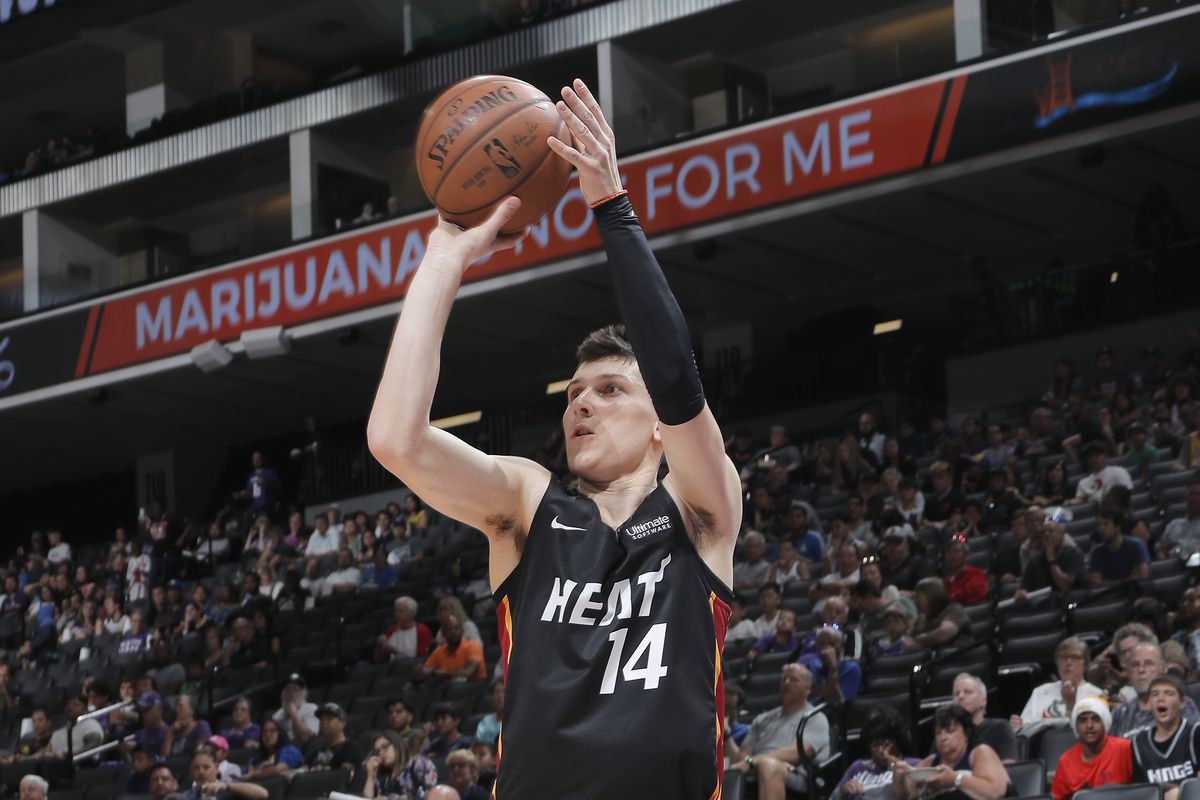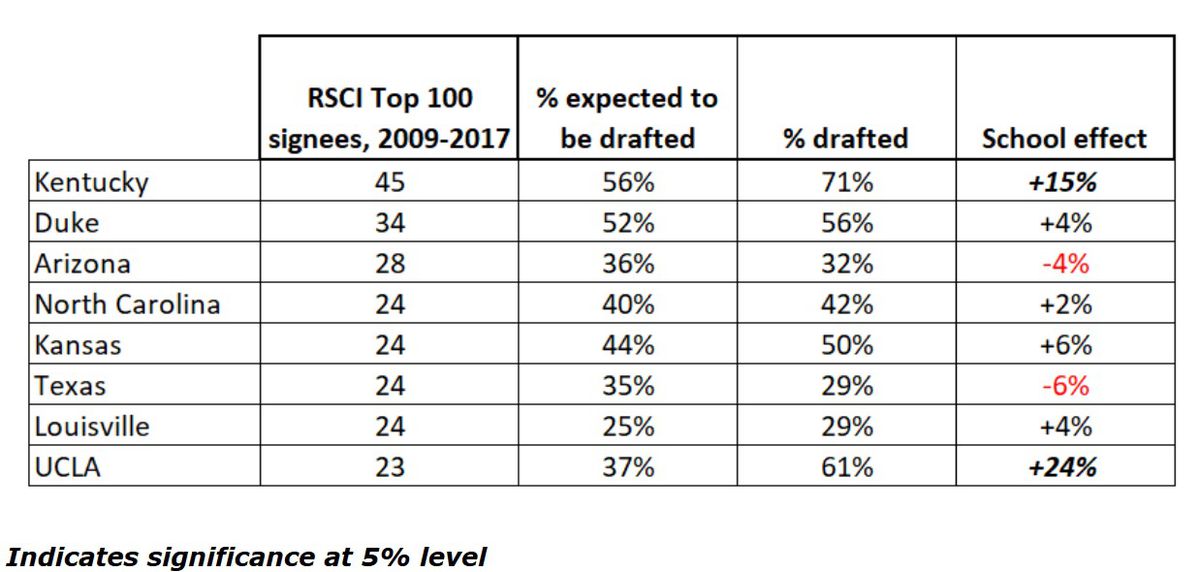@Hank_ @IUfanBorden @Scotty00 @Quavarius @MrBaracus @crazyqx83 @DallasJayhawk @jhmossy @kyjeff1 @lurkeraspect84
I just tagged you guys since you had some good back-and-forth at the beginning of the thread. Happened to see this today. Does the article below alter anyone's thoughts on the subject? Just food for thought. Carry on.
How do college basketball programs impact player development?
Is college basketball about recruiting talent or producing it?
By
Jamie Boggs@jamiewboggs Jul 9, 2019, 8:30am EDT
SHARE
Photo by Rocky Widner/NBAE via Getty Images
A common recruiting pitch for top basketball prospects is how a college program can put you in the position to be a successful NBA player. Most of them have strong examples of alums that have had strong careers in the league, but there are a few that are known for putting out more pros than others.
A big debate about colleges claiming credit for producing college basketball players is whether they are developing players into pros or simply recruiting players destined for greatness. If you ask Jay Bilas, colleges have much less to do with player development than they claim.

RSCIhoops@RSCIhoops
·
Jul 6, 2019
Great piece of analysis using RSCI rankings to show ...Which college basketball programs actually develop NBA talent | Kentucky Sports Radio
@HoopsInsights
@JayBilas
@KySportsRadio
http://kentuckysportsradio.com/basketball-2/which-college-basketball-programs-actually-develop-nba-talent/ …

Which college basketball programs actually develop NBA talent | Kentucky Sports Radio
By SEAN VINSEL Talent In, Talent Out The NCAA loves to remind us that most college athletes "go pro in something other than sports." At the highest levels of college basketball, however, players are...
kentuckysportsradio.com

Jay Bilas
✔@JayBilas
By that analysis, Oak Hill Academy “develops” and “produces” the most NBA players. Or, is the magic period of development limited only to the several months of college?
In response to a
recent article on KSR by Sean Vinsel of Hoops Insight statistically breaking down players over-performing their expectations coming out of high school, Bilas tweeted:
“By that analysis, Oak Hill Academy “develops” and “produces” the most NBA players. Or, is the magic period of development limited only to the several months of college?”
Whether you agree with Bilas or not, Vinsel’s breakdown is compelling. Using the RSCI player rankings for high school players entering college from 2012-2018, he looks at the raw numbers of NBA players produced by schools, how those players perform going into the
NBA Draft, and the impact of each school on how likely those players are to over-perform their RSCI expectations from high school.
Based on the RSCI Top 100 players during that time frame, Kentucky has both signed the most players (36) and produced the most NBA players (23). Duke is second in both categories.
But the really meaningful statistics introduced by Vinsel come when he uses a regression analysis to determine the actual impact a college program has a player’s chances of being drafted in three significant areas: being drafted at all, being drafted in the first round, and rookie salary.
Surprisingly, only two schools show a statistically significant improvement to their players’ draft chances: Kentucky and UCLA.
The impact of college programs on players being drafted.
Sam Vinsel, Hoops Insight
It was pretty shocking to see how well UCLA performs at helping players exceed their expectations. But given the sample size we are dealing with, these numbers are legit.
Breaking it down further, for players drafted in the first round, Kentucky remains at a statistically significant 15% effect. UCLA drops to 11%, and has too few players to be significantly significant.
Looking at rookie salaries, Kentucky again has a statistically significant effect as their players have earned $798,512 more than expected based on their RSCI player ranking. Duke is the only other school reaching statistical significance in this category, as their players have earned $419,761 more than expected.
To sum up Vinsel’s work, Kentucky has consistently helped their players outperform expectations in every major category. There are other schools doing good work, as well.
But when it comes to players leaving Kentucky better than when they came in, we now have statistical data to back up the arguments we often make about players like
Shai Gilgeous-Alexander and
Tyler Herro.
Take that, Jay Bilas.
Read Sam Vinsel’s guest post on KSR
here, where he shows the complete depth of his statistical analysis.






